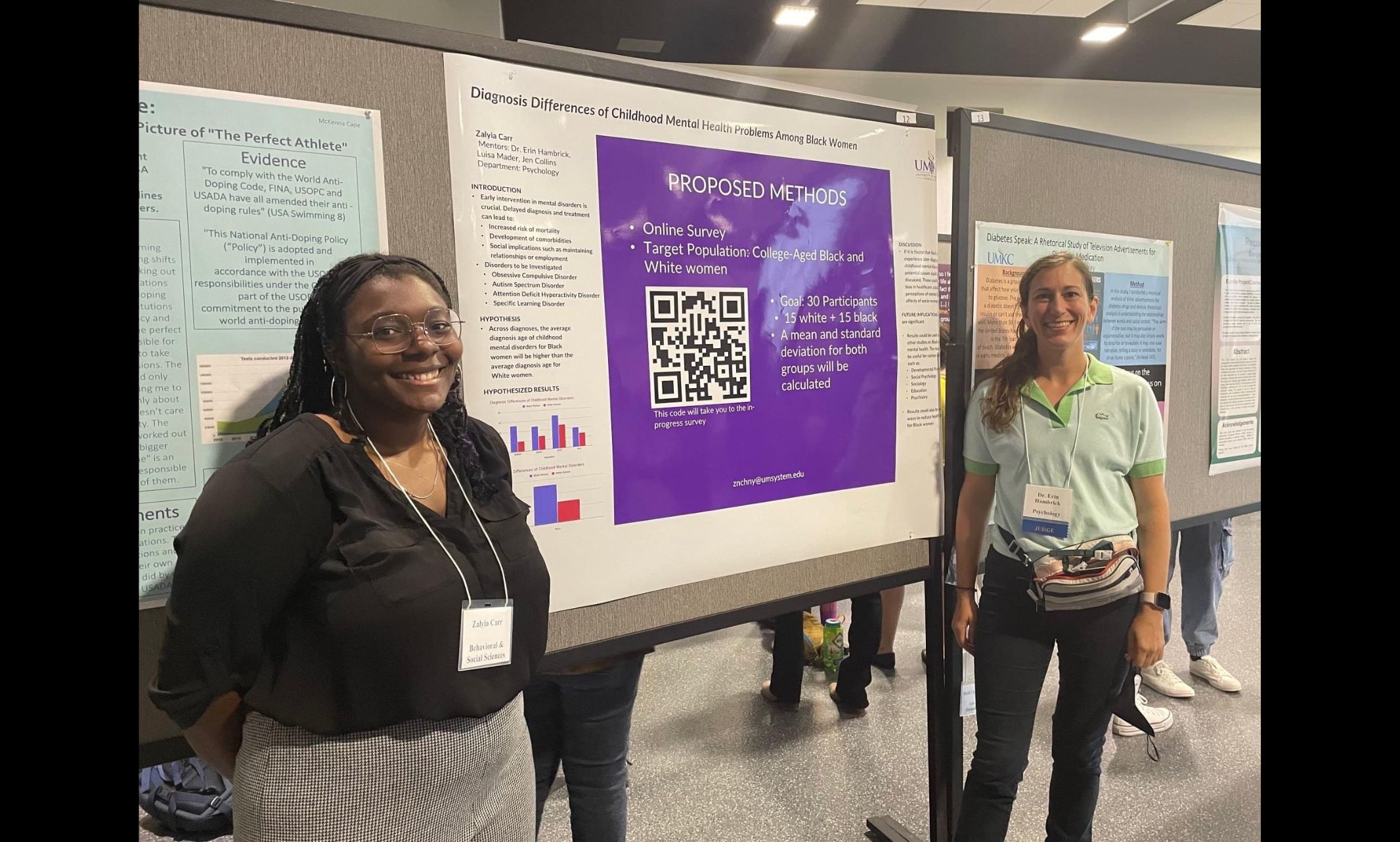Did you know people can experience growth after traumatic events? Erin Hambrick, Ph.D., is looking into how people have the ability go through trauma at a young age and all come out with different responses.
Last year, Hambrick’s work was chosen among hundreds of articles, and she was selected to be an inaugural speaker at Adverse Childhood Experiences (ACEs) Aware to discuss her paper. The ACEs Aware initiative is a first-in-the nation effort to screen patients for Adverse Childhood Experiences (ACEs) to help improve and save lives.
What is your area of expertise?
I’m a clinical child psychologist. I specialize in children’s exposure to adversity; specifically, how the timing, nature and severity of the negative experience can affect their development throughout the lifespan. I also study how positive experiences can be used to intervene and help children resume a more positive developmental trajectory.
What is the focus of your research?
My lab really zeroes in on how we can use what we know about what happened to a kid to inform how we might intervene. Some of what we do is longitudinal studies, where we’ll look and see what happened to kids and how it affects their long-term experience. We also work with therapeutic preschools and community-based agencies, to assess life experiences that kids have had. We help them understand what to expect in terms of how long treatments take, particularly what social supports and protective factors we really need to shore up for the child before we might expect the interventions to begin working.
What led you to this field of study?
Early in my study, I was really interested in the way people had the ability to experience hardship and get through it. Why is it that some people can go through really extreme circumstances and either come out okay, or even exhibit some growth? We obviously know that adversity and trauma can lead to many negative outcomes that we want to prevent, but it doesn’t always do that. So, I’ve been very interested in why is it that we have this differential response, and how we can learn more about it so that we can help more people get through traumas and adversities.
What is your research paper about?
An open question for some time has been the relative impact of when adversity happens during a child’s development. I think for a long time we really haven’t appreciated that severe, chronic and unrelenting stress even during the first few months of life is not only impactful but might be more impactful than stressors or experiences later. So, this paper was perhaps the first to show that chronic and unrelenting exposure to adversity during the first two months of life have a more pervasive and negative impact on children’s developmental trajectories than adverse experiences later in life.
What do you wish more people know about your research?
To me the number one message is how powerful, positive early life relationships can set children up for success. The most exciting part is that we are talking about stuff everyone can do. We’re talking about feeding a baby when its hungry, regulating a baby’s temperature and smiling at a baby when it wakes up. However, we probably will need some systems changed, to make those basic realities available to all children. I wish people knew just how important those early moments are but also just how capable we are as a society in doing what it takes to give kids a positive start.
Why is your research important to understand?
The reason why early exposure to extreme stress and relational poverty is so impactful is how fast our brains are developing in response to our environment in those early days. Our very first experiences set our neural “templates” for the way the world works. If we are bathed in stress in our early days, then our stress responses strengthen and grow while the parts of our brain that help us grow and develop are kind of put on hold. Therefore, with early life adversity and relational poverty, we often see global deficits in sensory processing, cogitation, self-regulation, other relational skills and more.

